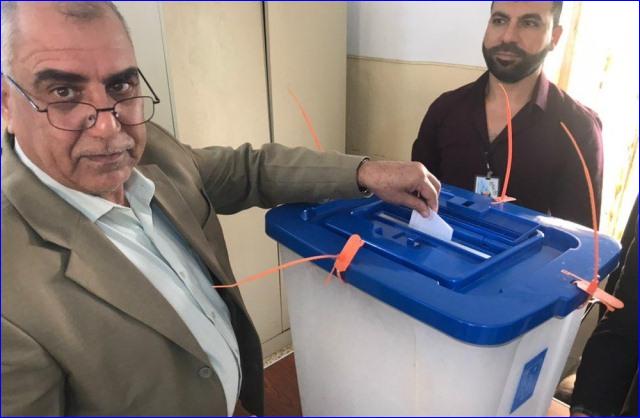


Under the election law, Christians, including the Armenians, hold five seats distributed across Baghdad, Nineveh, Kirkuk, Erbil, and Duhok. Yazidis are allocated one seat in Nineveh, while the Shabak community also has one seat in the same province. The Sabean-Mandaeans, an ancient religious group concentrated mainly in Baghdad and the south, hold one seat in the capital. Feyli Kurds, a Kurdish Shiite group with a large population (800,000 to 1 million) in Wasit and Diyala, hold one seat in Wasit.
These nine quota seats are determined exclusively by votes cast for candidates belonging to the respective communities. Minority voters may also take part in general voting, but their community seats are decided by which candidate within each group secures the highest number of votes.
This system enables Iraq's smaller communities to maintain a political voice despite their limited numbers. For the upcoming elections, Christian parties have united under a single front -- the Christian Alliance -- which includes the Chaldean National Congress, Syriac Assembly Movement, Chaldean Democratic Union Party, Armenian Association, and the Iraqi Chaldean League Global Organization. The alliance seeks to consolidate Christian votes in the face of competition from the Babylon Movement, led by US-sanctioned Rayan al-Kildani.
The Babylon Movement has expanded its influence in recent elections. It won no seats in 2014 but secured two in 2018, and in 2021 it doubled that number, now controlling four of the five seats reserved for Christians in parliament.
The Yazidi community, still recovering from the 2014 ISIS genocide and displacement, views parliamentary representation as a tool to advance reconstruction in Sinjar and push for broader recognition of Yazidi rights. There are an estimated 500,000 to 550,000 Yazidis in Iraq, most in Sinjar and Duhok, with up to 360,000 still displaced.
Shabak candidates, mostly concentrated in the Nineveh Plains east of Mosul, campaign on local security, land disputes, and post-war reconstruction. Once numbering around 250,000, the Shabak population has fallen to tens of thousands due to displacement and migration.
The Sabean-Mandaeans, one of Iraq's smallest religious minorities, continue to advocate for legal protection and equal access to public employment. Their parliamentary seat, representing a community now numbering between 3,000 and 15,000--down from some 70,000 before 2003--remains symbolically important to Iraq's religious diversity.

or register to post a comment.